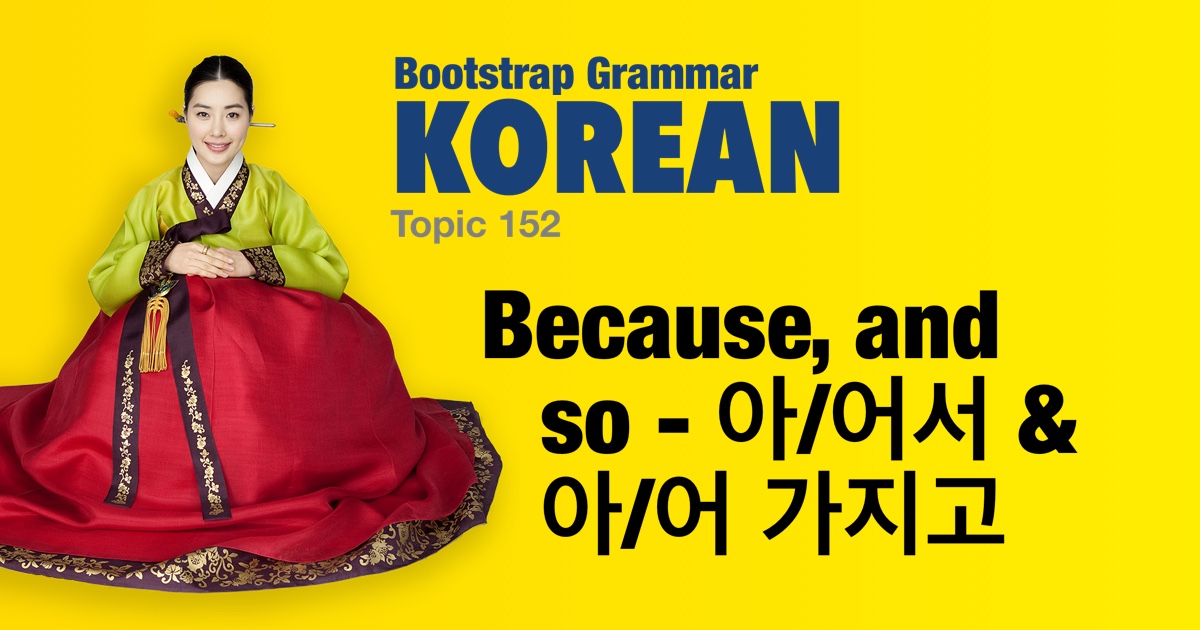Korean grammar - Because, and so - 아/어서 & 아/어 가지고 |
|||
|
|||
Pattern: Verb stem + 아/어서; Verb stem + 아/어 가지고 The Verb endings 아/어/여서 and 아/어/여 가지고 are both common ways to say 'because' or 'so'. Both of these also have a sense of 'and then…^. While similar in meaning 아/어 가지고 is more colloquial. Recall that we previously saw a similar meaning with the pattern Verb stem + 기 때문에 which explicitly means 'because'. |
| Examples: | |
|
세영이는 학교에 늦어서 당황했어요.
Seyoung was embarrassed because she was late for school.
|
|
|
어제 책을 다 읽어서 오늘은 쉬고 있어요.
(She) read all the books yesterday, so (she) is resting today. |
|
|
시간이 다 돼서 오늘 수업을 마칠 거예요.
Time is up, so (I) will wrap up today's class.
|
|
|
오늘은 바빠서 책을 읽을 수 없네요.
(I) can't read a book today because (I) (surprisingly) busy. |
|
|
사과가 싸서 한 박스를 샀어요.
The apples were cheap so (I) bought a box. |
|
|
밤이 깊어서 이젠 집으로 돌아가야 해요.
(I) have to go home because it's late at night.
|
|
|
날씨가 나빠 가지고 나갈 수 없어요.
The weather is bad, so (we) can't go out. |
|
|
시험이 다 끝나 가지고 오늘은 놀러 가려고 해요.
Because the exam is over, so (I) am going to have fun today. |
|
|
그는 배가 아파 가지고 화장실에 갔어요.
(He) went to the bathroom because he had a stomach ache. |
|
|
저는 시험 준비를 많이 해 가지고 안심이 돼요.
Because I prepared a lot for the exam, (I) feel relieved. |
|
|
너무 피곤해 가지고 바로 잠들었어요.
Because (I) was so tired. (I) fell asleep right away. |
|
|
밥을 많이 먹어 가지고 지금은 배불러요.
(I) ate a lot so now (I) am full. |
|
|
공부를 안 해 가지고 역사 시험에 떨어졌어요.
(I) didn't study so (I) failed the history exam. |
|
|
집에 와 가지고 바로 잠자리에 들었어요.
(I) came home and went straight to bed.
|
|
|
김밥을 만들어 가지고 친구한테 줬어요.
(I) made kimbap and gave it to a friend.
|
|
 |
|



 Here the sense is more 'and then
Here the sense is more 'and then